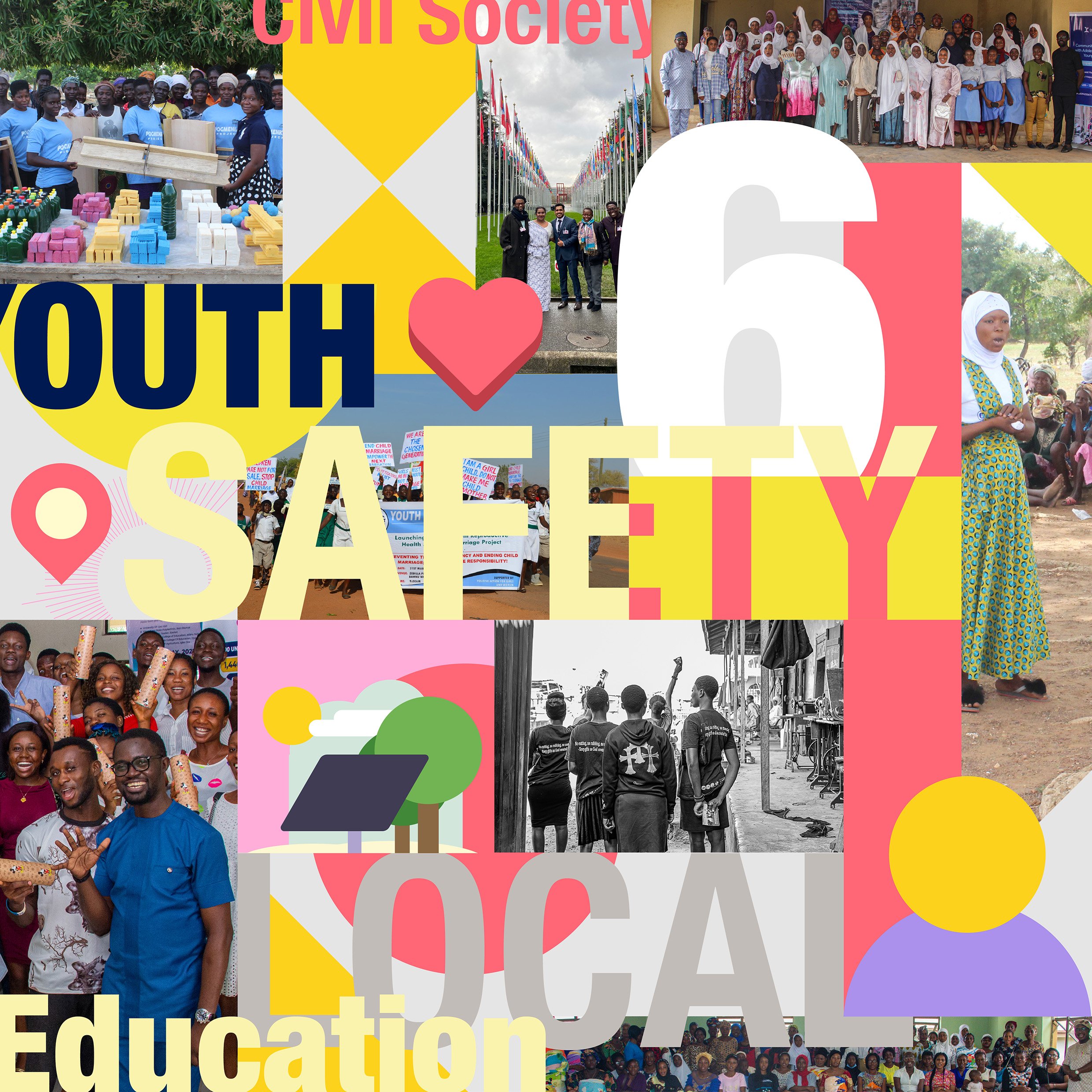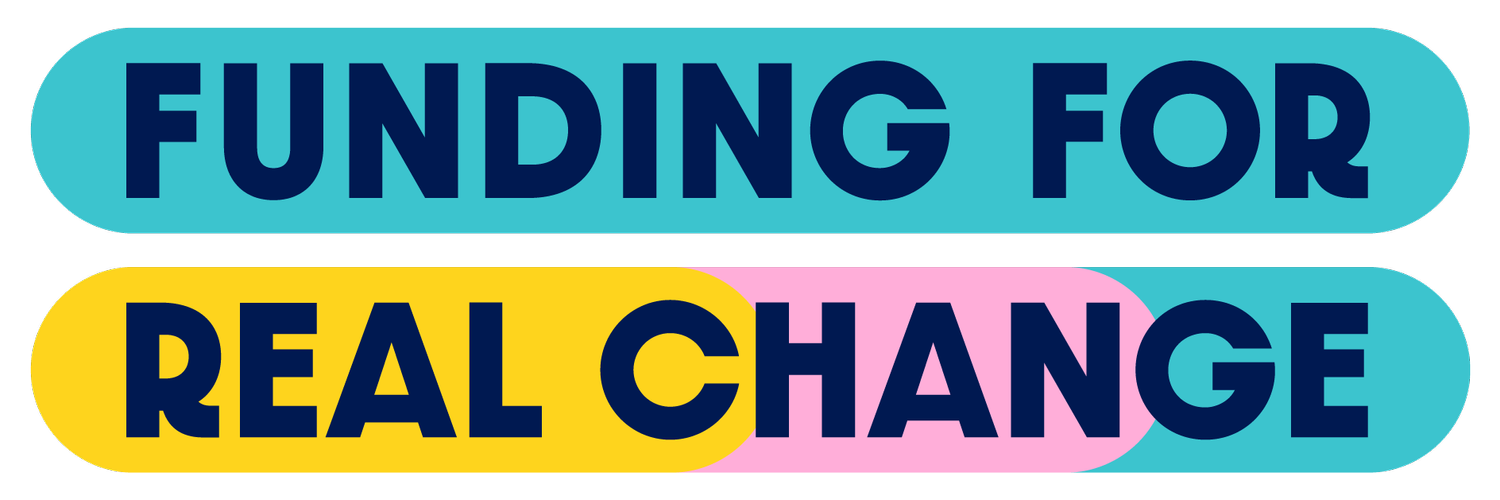Voices from Civil Society:
Onelife Initiative + Youth Harvest Foundation Ghana
Learn more about:
Onelife Initiative
Learn more about:
YHFG

Onelife Initiative for Human Development:
A stronger, brighter future
Youth-led development: growing together
Nigeria has one of the largest populations of young people in the world. Onelife Initiative for Human Development does not consider this growing population a socioeconomic burden on the country but rather a key asset to advancing the development agenda and unlocking a future in which they can thrive. ‘Sola Fagorusi founded Onelife Initiative as a young university graduate hungry for change. The young people he has hired over the years have grown alongside him, and alongside the organization as it evolved into a multi-site multi-sectoral engine for progress across several thematic areas: governance and policy, including civic engagement and advocacy; sexual and reproductive health and rights, including safe options for management of unintended pregnancy and comprehensive sexuality education; and enterprise development for an inclusive economy.
“What we eventually put [for IDC] is not what they really are. Once we come up with the budget, we take it down. Some [funders] say we can’t have more than 7%, 10%. It’s a very subtle way of saying, ‘We don’t care how you get the job done. Just get the job done.’
‘Sola Fagorusi, Onelife Initiative
Making ends meet: Sometimes one step forward, two steps back
Onelife Initiative’s visions for Nigeria’s youth and for its own staff, who are largely young people themselves, are one and the same – having safe, supportive environments conducive to learning, innovation, economic security, active engagement, and collaboration. However, insufficient indirect cost coverage poses a barrier to achieving both.
Traveling to marginalized communities in rural areas is crucial to Onelife’s work. However, remote roads are high-risk for kidnapping linked to political violence, terrorism, and organized crime. ‘Sola and his colleagues have been kidnapped, beaten, and held for ransom on weeks on an occasions. Health benefits, life insurance policies, access to accurate and timely intelligence, and tracking devices are not merely indirect costs but indispensable investments in staff safety and security. Onelife hopes to also obtain kidnap insurance that could provide reimbursement and negotiation services related to ransom and extortion.
Nonprofits notoriously offer low pay for demanding, sometimes emotionally exhausting and physically dangerous, work.
Due to reliance on project grants that consider salaries ineligible for cost recovery or only allow small proportions for specific staff, Onelife has struggled to provide adequate wages, let alone competitive ones, to recruit, retain, and train talent. When resources are particularly constrained, ‘Sola and his colleagues have at times split meager funds equally among themselves so no one is left behind.
Funders often require grantees to have a dedicated space, considered an indicator of legitimacy. Site visits tend to be done from low-trust perspectives to make sure an organization exists, rather than to learn and initiate relationship-building. Onelife has its name on its walls not out of pride but to ensure it will be perceived as valid. Despite requiring infrastructure, many funders do not cover rent or only allow a portion. To fill funding gaps and gain some self-sufficiency, Onelife began renting out a room for use by other groups or families with short-term needs. As a result, a key funder said it was no longer an allowable indirect cost. So, instead of earning income, staff were displaced for no net benefit due to losing IDC coverage.
Call to action to funders and civil society organizations
There are other important ways funders can support the sustainability of grantee partners. For example, Onelife’s funders have provided funds for installation of solar panels to lower energy costs, donated QuickBooks for improved accounting, provided information about and introductions to other funders, asked for concept notes before requesting full proposals to save time and resources, and simply asked them what their needs are at the outset of projects.
Onelife also has a strong call to action for other civil society organizations about how they can and must be stronger together: be courageous and ask for your true needs, set aside the scarcity mindset and share information and fundraising best practices, and, if feasible, outsource work to peer organizations who are struggling to stay afloat.
“Share insights that other organizations can learn from. That could be a gamechanger... [The sector] looks like competition but that’s not what it has to be. It has to be collaboration and cooperation so we can continue to grow.”
‘Sola Fagorusi, Onelife Initiative

Youth Harvest Foundation Ghana: Trust the grassroots
A local champion
Youth Harvest Foundation Ghana (YHFG) is a small organization with a big mission.
Based in the Upper East region of Ghana, one of the poorest in the country, it is committed to empowering young people to be self-reliant, self-sufficient, and self-determined in their personal lives and professional development, and as active advocates of the rights of young people and contributors to a sustainable environment.
Indirect costs aren’t always what you think
Due to the sensitive nature of sexual and reproductive health and rights (SRHR) work in Ghana, YHFG staff have heightened security risks and are vulnerable to attack. Hiring and retaining security staff are ongoing challenges because the organization is dependent on project grants which largely do not consider their salaries allowable indirect costs. It also hopes to one day erect a fence around its Youth Center to prevent access by intruders.
As part of its SRHR program, YHFG worked with other civil society organizations in consultation with the Ministry of Education in 2018 to develop national guidelines on Comprehensive Sexuality Education (CSE). When anti-rights groups learned about the initiative, they launched a campaign that falsely equated CSE with the promotion of promiscuity and an “LGBTQ agenda.” In addition to facing physical safety concerns, YHFG had to fend off attacks in the media and allay the public outcry.
and resources are to the core operations and survival of organizations in the SRHR space and, thus, why they should be eligible for indirect cost recovery.
Additionally, it reflects how projects do not exist in silo. When projects are jeopardized by external threats, so, too, are the organizations implementing them. Flexible funds enable them to respond by adjusting budgets or even reallocating funds to address unexpected needs that arise.
“Resilience is the ability of an organization to anticipate, prepare for, respond, and adapt to incremental change and sudden disruptions in order to survive and prosper. The last time I checked, we are nowhere near there. We can only anticipate. This is because we are donor dependent and survive on projects.”
Priscilla Nyaaba, ED, YHFG
It is also a testament to the power and nature of grassroots groups, how they truly earn the trust of the communities in which they work. Although YHFG had to respond to concerns elsewhere in Ghana, the people it directly works with were not influenced by the false claims and maintained support for its critical work.
Doing a lot with a little
Since 2002, people in Northern Ghana have trusted YHFG to care for and improve those things most dear to them: their health, education, economic security, and environment. It is a harsh irony, then, that funders have not yet come to trust it as a custodian of life-supporting, let alone life-changing, funds.
After celebrating 20 years, YHFG received its first core funding grant in January of 2023. It has never received a project grant with indirect cost coverage that meets its true needs.
“I really want to call on funders to target grassroots organizations... grassroots, youth-focused, youth-led and women-led organizations are in direct contact with the community and the most vulnerable in society but often lack the needed funding and support.”
Priscilla Nyaaba, ED, YHFG
Because grants for grassroots groups tend to be very small, particularly those for youth-led and women-led organizations, YHFG has even submitted budget proposals with zero overhead just to obtain the bare minimum for project costs – and funders have accepted them, as opposed to raising red flags and questioning how enabling this might be harmful to the organization’s financial health.
Grassroots organizations must also contend with various bottlenecks in international grantmaking. Many large international funders establish national entities to channel and disburse funds through.
In YHFG’s experience, there can be inconsistent implementation of policies and delayed diffusion of norms and principles from headquarters to national offices, meaning local grantees are not benefitting from institutional reforms put in place to meet their needs – including those related to indirect costs.
Dollars can also flow inefficiently across borders when the costs of doing so are not accounted for, eroding away funds that would have gone directly to organizations.
Small groups also face competition from well-resourced organizations that have the capacity to respond to calls for proposals but often lack the embeddedness in communities necessary for programs to be impactful and sustainable.
YHFG has accomplished so much despite subsisting on so little. Imagine what it could do if it didn’t have to.
Written By Alexandra Solomon




